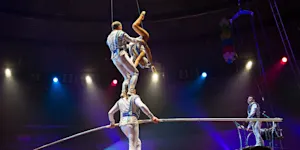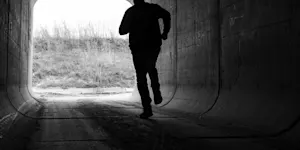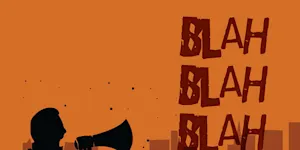What Makes This Word Tick
"Lethargic" is a word that beautifully captures the feeling of being sluggish, unenergetic, or downright lazy. It’s not just physical tiredness—lethargy can affect your mental sharpness too. Imagine the slow, heavy steps of a bear just waking from hibernation, and you’ll get the idea.
If Lethargic Were a Person…
If lethargic were a person, they’d be that perpetually relaxed friend who’s always lounging on the couch, perhaps lost in the pages of a good mystery novel. This person isn’t in a rush; they value comfort and take life at a pace that some might envy, and others might find exasperating.
How This Word Has Changed Over Time
The essence of being lethargic hasn’t shifted much over the centuries. Stemming from ancient Greek medical terminology, "lethargikos" was used to describe a torpidity considered a medical condition. Today, we more commonly attribute it to a lack of enthusiasm or energy rather than a serious ailment.
Old Sayings and Proverbs That Use Lethargic
While the word "lethargic" isn’t part of many proverbs, the concept is captured in sayings like "slow and steady wins the race," implying that even if someone’s pace seems lethargic, they may ultimately achieve success.
Surprising Facts About Lethargic
Did you know that animals like bears and squirrels experience real lethargy in winter, as part of hibernation? Humans have adopted the term, possibly inspired by this seasonal slowdown in nature, to describe their own bouts of fatigue.
Out and About With This Word
You’ll often find "lethargic" creeping into casual conversation when someone comments on their mood after a heavy meal or a long nap. It’s the perfect word to sum up those lazy afternoons when you can't summon up the energy to do much of anything.
Pop Culture Moments Where Lethargic Was Used
In pop culture, characters often bemoan a "lethargic" demeanor when dealing with hangovers or boring work days. This word slips into scripts to highlight a character's disinterest or exhaustion, setting the scene without needing more elaborate descriptions.
The Word in Literature
"Lethargic" nestles comfortably into the pages of literature to describe characters or settings suffused with languor. Classic novels sometimes set a lethargic scene to establish mood, like a hazy, hot afternoon where time drags interminably.
Moments in History with Lethargic
Historical accounts of the long, nonchalant days of the Gilded Age or the somnolence of summer during the Great Depression might have been perfect settings for the word "lethargic." These times were marked by periods of inactivity and contemplation, apt environments for lethargy.
This Word Around the World
Culturally, the expression of lethargy differs globally. In Japan, for example, "nemui" refers to feeling sleepy, but it can convey the idea of lethargic behaviors when one is not just tired but unwilling to move quickly.
Where Does It Come From?
"Lethargic" traces back to the Greek "lethargos," meaning forgetful, derived from "lethe," which means oblivion. It was first used in English in the Middle Ages and has always connoted a kind of dullness or drowsiness.
How People Misuse This Word
People sometimes say "lethargic" when they mean just tired or sleepy, but true lethargy is more profound. It suggests a prolonged and often unexplained lack of energy rather than the night-after-too-much-tv kind of sleepiness.
Words It’s Often Confused With
Lazy: Both imply a lack of activity, but "lazy" suggests a choice, whereas lethargy can stem from fatigue or health issues.
Tired: Being tired is temporary and usually relieved by rest; lethargy can persist even after sleeping.
Sluggish: Akin to being slow, but sluggishness can be due to immediate factors, whereas lethargy can be ongoing.
Additional Synonyms and Antonyms
Synonyms that capture a similar essence include indolent, listless, and sluggish. On the flip side, antonyms like energetic, lively, and active stand in stark contrast to lethargic’s languid nature.
Want to Try It Out in a Sentence?
After the Thanksgiving feast, everyone felt so lethargic they could barely muster the energy to watch the football game on TV.
















